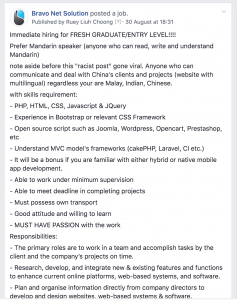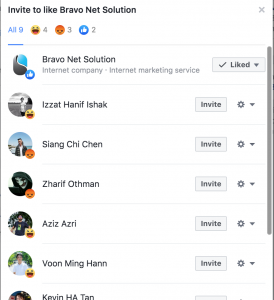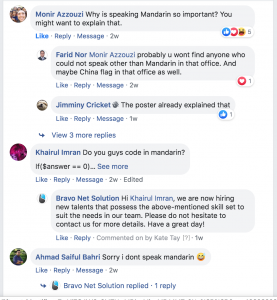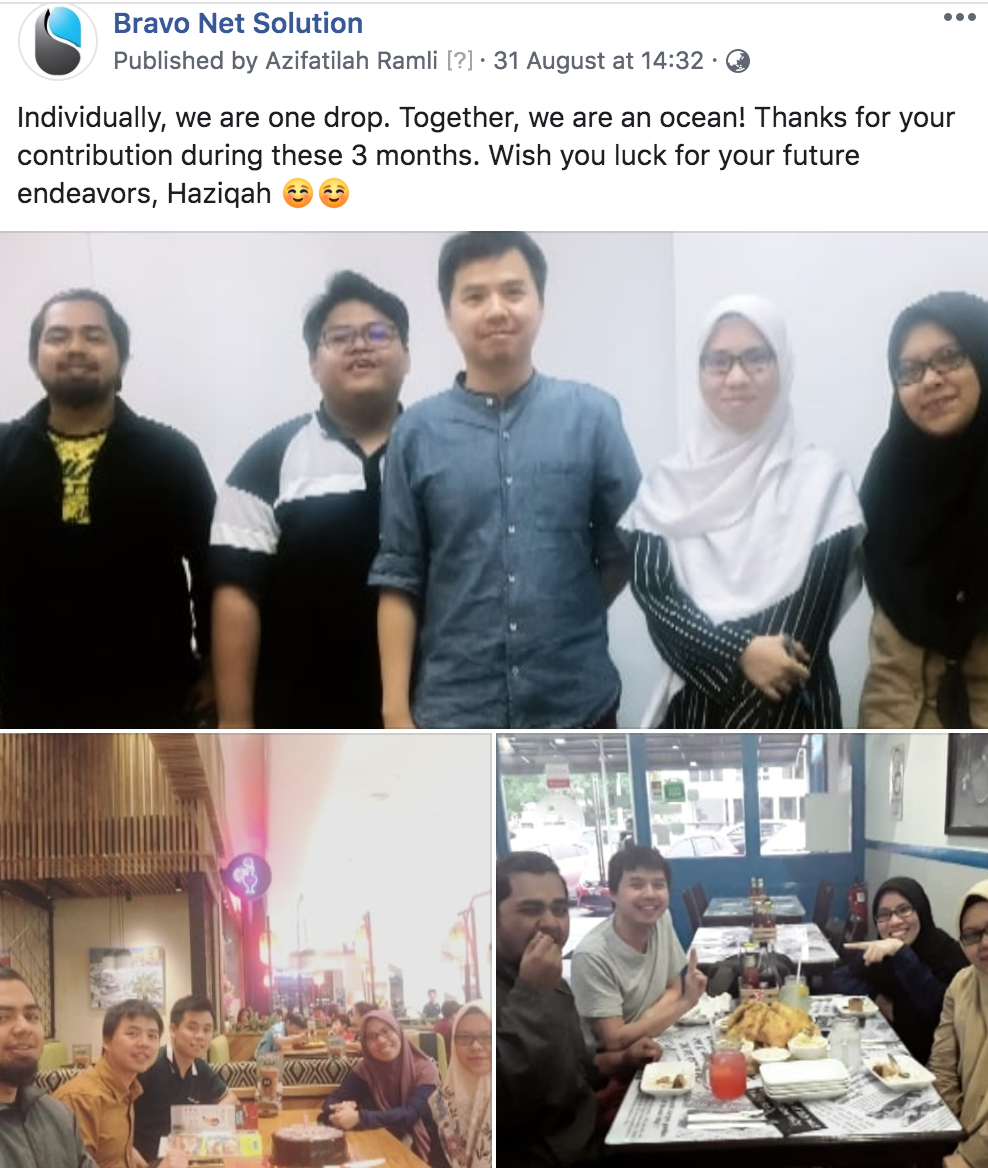It is sad to have your intention twisted by random netizens without fact-checking.
The incident happened when my colleague Ms Azifatilah posted a recruitment job post in one of the I.T job hunting groups: https://www.facebook.com/groups/wckljobs/1500902710051746/ (landing page may disappear after some time.)
One of the job requirement descriptions reads “preferably someone who can communicate in mandarin”, has outraged some netizens into labeling the post as “racist hiring”.

The post started to get attention and people started to dislikes and comments,


Many netizens chose to react by leaving sarcastic and seemingly irrational comments that are not backed by evidence, without even an attempt on asking why the ability to communicate in Mandarin is required for the role.
These comments are mostly based on the netizens’ urges to react on things that is to them emotion-triggering. If those netizens are wise enough they would have at least checked out our Facebook page and website to look into our company culture, or at the very least, to find out if we are really “racist”. Ironically if these comment posters verify before making such accusations, they would have found out that our team members are comprised of diverse ethnicities. In fact, the hiring of mandarin speaking talents would actually add more diversity into our company!
This reminds me of one of those old wise sayings: you can burn the entire forest by simply igniting the leaves.
The same applies to social media manipulation. Mind you, technology advancement has never been the culprit, if it is at all blameworthy, I would say, blame its ability in amplifying human manipulation. It is not surprising if I say our generation is inseparable with media influences, especially so with the invention of broadcasting.

Let’s start with commercial ads manipulation, can you claim with absolute confidence that you are entirely free from such a consumerism context that we currently live in? More often than not, our purchasing decisions and habits are merely the result of a series of advertisers’ influences and campaigns.

Humans are social beings, it is inevitable that we influence one another, in the words of Nick Morgan published in Forbes:
“We humans are social beings; we share mirror neurons that allow us to match each other’s emotions unconsciously and immediately. We leak emotions to each other. We anticipate and mirror each other’s movements when we’re in sympathy or agreement with one another—when we’re on the same side. And we can mirror each other’s brain activity when we’re engaged in storytelling and listening – both halves of the communication conundrum.”
This, our nature as a human, I would say, is not a weakness. What proves to be problematic, is reckless and/or malicious manipulation, and the inability to exercise independent and critical thinking.
Manipulation isn’t something new, it’s often used to influence the targeted people into carrying out some desired actions of the manipulator. Ancient days, it was used by the religious leaders through verbal communications techniques; during industrial revolution period, newspapers, radio and TV programmes became the means of mass manipulation; with today’s technology, the internet and social media have brought the manipulation game to the next level given its coverage, speed and accessibility.

Here’s the thing, at this era, people are given the authority and means with just a few clicks, with the easily accessible social media we have, it literally takes just one click to infuse rage and hatred among people– one photoshopped photo, one edited video, one made-up rumour in the form of unverified news articles, just one of these is enough to initiate a netwar, between the people that haven’t even met in real life.

The question goes back to those who act, are they acting correctly and sensibly or are they just one of those manipulated puppets? The advancement of technology became the catalyst and amplifies what we are by nature. Social media profiles don’t necessarily reflect who the authors that hide behind the screens truly are in their real lives, but their actions tie tightly with what kind of internet culture we have.

